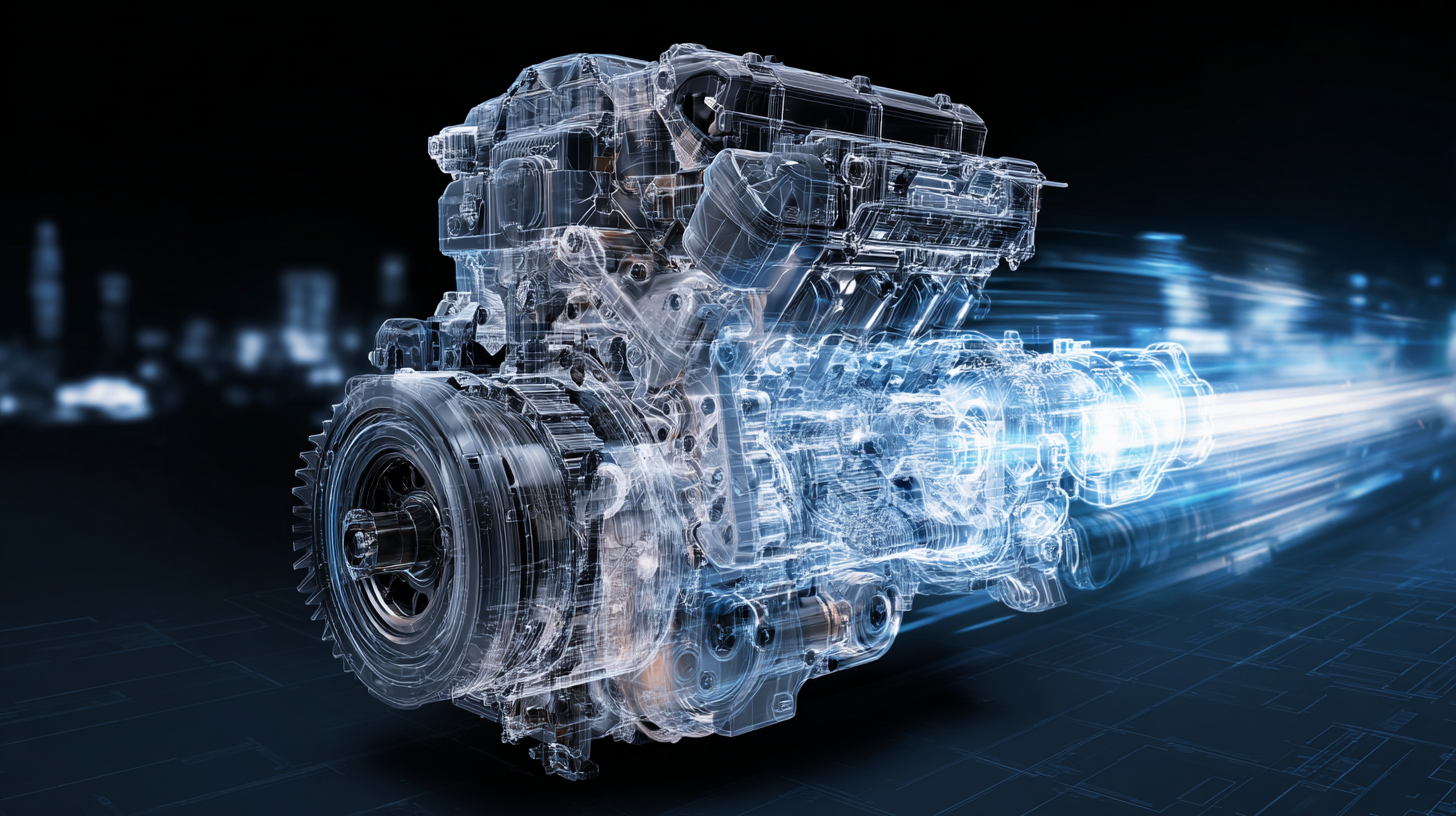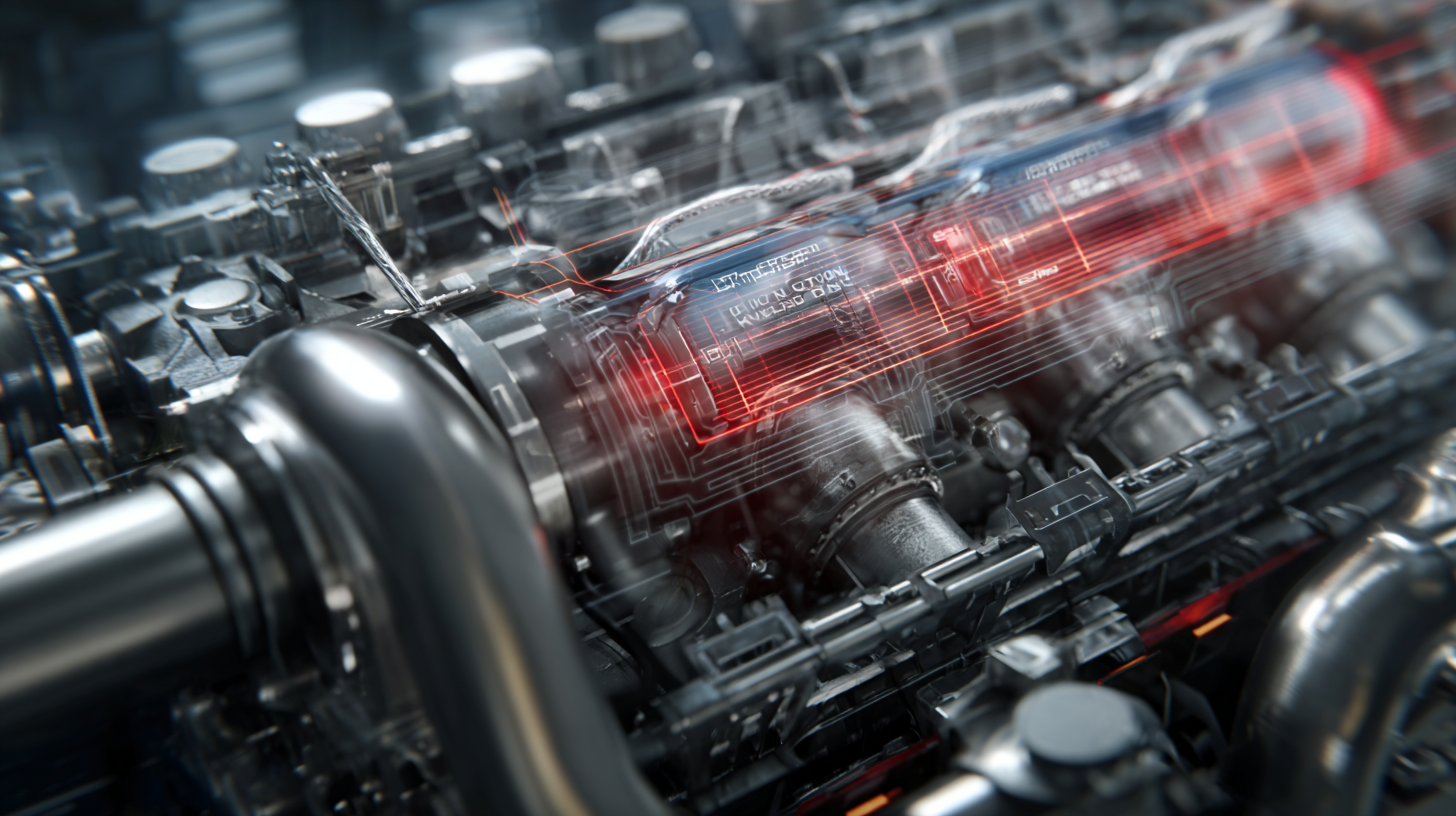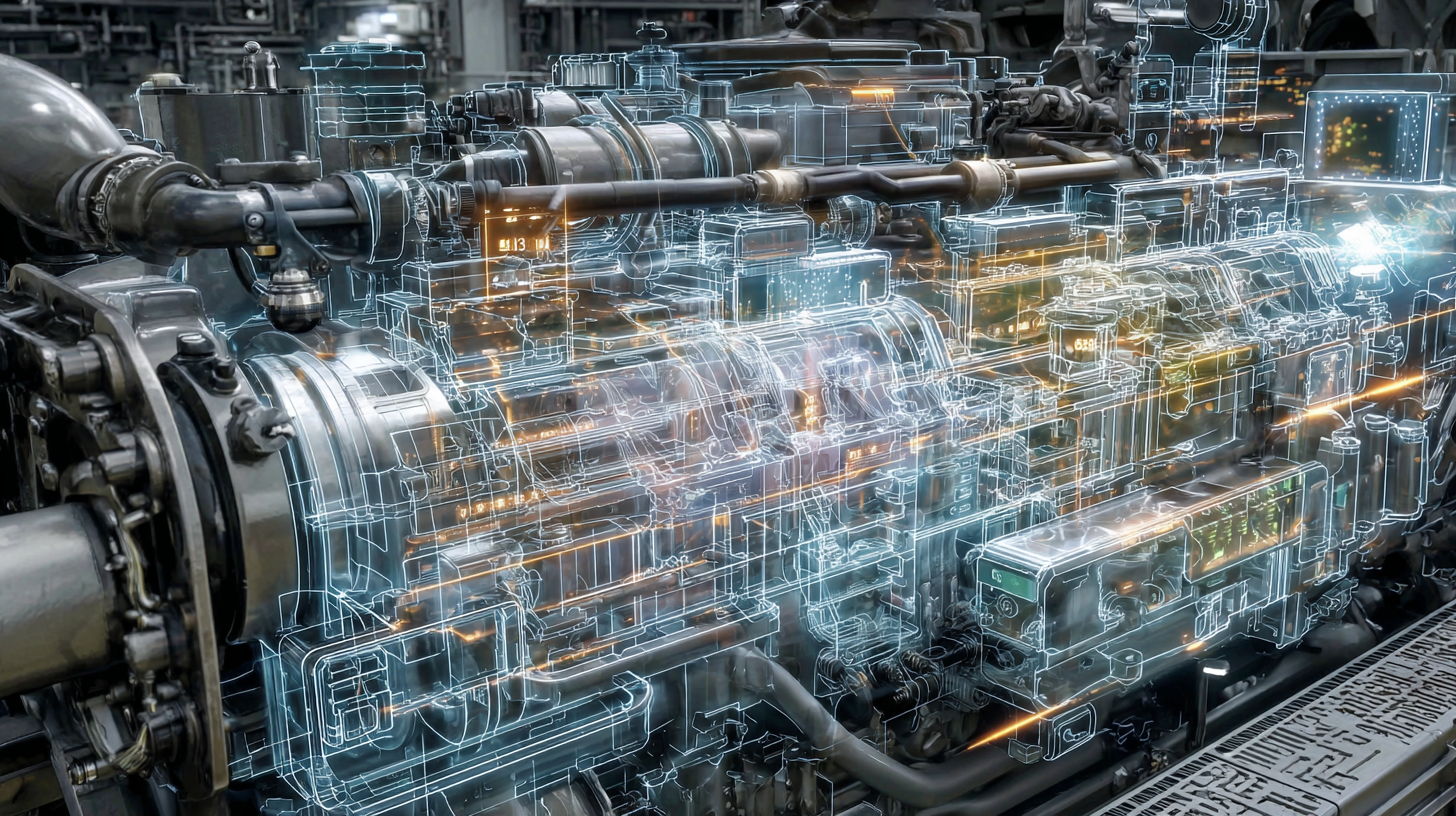
Unlocking Efficiency with the Best Diesel Engines in 2023 Five Key Industries Transforming Their Performance
In 2023, the demand for efficiency and performance in various industries has led to a significant focus on optimizing operations with the best diesel engines available. According to a recent report by MarketsandMarkets, the global diesel engine market is projected to reach USD 22.6 billion by 2026, driven by the increasing need for reliable power sources in sectors such as transportation, construction, agriculture, and marine applications.

The advancements in diesel technology not just enhance fuel efficiency but also reduce emissions, aligning with the global push for sustainable practices. As industries continually strive for operational excellence, the integration of cutting-edge diesel engines from "the finest manufacturing plants in China" is pivotal.
This blog will explore five key industries transforming their performance through the strategic adoption of advanced diesel engine solutions, highlighting how these powerful machines are setting new benchmarks in productivity and sustainability.
Exploring the Latest Innovations in Diesel Engine Technologies for 2025
The diesel engine industry is experiencing remarkable innovations as we approach 2025, with several key advancements aimed at enhancing performance and efficiency. For instance, the recent introduction of new gas engines reflects an industry-wide pivot towards higher horsepower and greater performance, driven by increasing market demand. Companies at the forefront are focusing on innovation to provide users with superior products that meet the evolving needs of heavy-duty applications.
Moreover, various sectors are aligning their strategies to leverage these technological advancements. The upcoming international auto shows are set to unveil next-generation diesel and gas engine technologies, emphasizing not only efficiency but also environmental sustainability. This aligns with the growing interest in solutions that address both performance and ecological impacts, highlighting a transformative phase for diesel engines in multiple industries. As the landscape evolves, key stakeholders are investing in research and development to drive future breakthroughs in diesel technologies, ensuring that they remain competitive in a rapidly changing market.
Key Factors Driving Efficiency Improvements in Diesel Engines Across Industries
The landscape of diesel engines in 2023 is witnessing a transformation driven by several key factors that enhance efficiency across various industries. One significant element is the integration of advanced fuel injection systems. These systems ensure precise fuel delivery and atomization, leading to more complete combustion. As a result, manufacturers can achieve higher power output with lower emissions, meeting stringent environmental regulations while maintaining performance.
Another pivotal factor is the adoption of turbocharging technology. By utilizing exhaust gases to boost engine power, turbochargers reduce the overall fuel consumption without compromising performance. Industries such as transportation and construction are increasingly leveraging this technology to optimize their operations and cut costs. Additionally, the implementation of predictive maintenance and IoT solutions enables real-time monitoring of engine performance, allowing for proactive adjustments and minimizing downtime. This holistic approach to performance enhancement is redefining the capabilities of diesel engines, making them more efficient and reliable across the board.
Unlocking Efficiency: Diesel Engine Performance by Industry in 2023
How Green Energy Approaches are Shaping Diesel Engine Development
As the demand for greener energy solutions continues to rise, the diesel engine industry is undergoing significant transformations to align with environmental standards. According to a report by the International Energy Agency, diesel engines are increasingly incorporating advanced technologies aimed at reducing emissions. For instance, the implementation of Selective Catalytic Reduction (SCR) systems has shown to reduce nitrogen oxide emissions by up to 90%, showcasing how innovation can enhance efficiency while meeting regulatory requirements.

Moreover, the integration of biodiesel and other alternative fuels is revolutionizing diesel engine development. Recent studies indicate that using biodiesel can yield a reduction of approximately 78% in lifecycle greenhouse gas emissions compared to conventional diesel. This shift not only promotes sustainable energy practices but also provides a competitive edge for industries such as transportation, agriculture, and construction, which heavily rely on diesel engines. As companies invest in such greener technologies, the landscape of diesel engines in 2023 indicates a promising evolution towards greater efficiency and environmental responsibility.
Case Studies of Industries Benefiting from Advanced Diesel Engine Solutions
Industries across the globe are revolutionizing their operations through the adoption of advanced diesel engine solutions. The heavy-duty trucking sector, for instance, has witnessed a dramatic shift with the introduction of more fuel-efficient diesel engines. According to a report by the American Transportation Research Institute, trucks utilizing modern diesel technology can improve fuel efficiency by up to 30%, significantly lowering operational costs. This enhancement is crucial, especially as the industry navigates increasing fuel prices and demands for sustainable practices.

In the construction industry, the shift to advanced diesel engines is equally transformative. A study by the Construction Equipment Association highlights that machinery fitted with the latest diesel engines outperformed older models by 25% in fuel consumption during heavy-duty applications. This not only reduces greenhouse gas emissions but also increases productivity on-site, allowing projects to stay on schedule and within budget. Furthermore, the marine sector has also benefited tremendously, with improvements in diesel engine technology leading to a 15% increase in overall operational efficiency for cargo vessels, further supporting global trade dynamics. As these industries illustrate, advanced diesel engines are pivotal in enhancing performance while addressing environmental concerns.
Future Predictions: The Role of Diesel Engines in the Next Decade of Industry Transformation
As industries continue to evolve, the role of diesel engines in driving efficiency and performance is becoming increasingly significant. According to a recent report by the International Energy Agency, diesel engines account for approximately 40% of global transportation energy use, underpinning their vital role in sectors such as logistics, agriculture, and construction. With projected advancements in technology, diesel engines are expected to achieve a 10-15% increase in fuel efficiency over the next decade, further solidifying their importance as businesses look to reduce costs and lower emissions.
Moreover, the market for diesel engines is anticipated to reach a valuation of $100 billion by 2030, driven by the rising demand for heavy-duty vehicles and machinery. The construction industry, which is set to grow at a CAGR of 4.5% from 2023 to 2030, is particularly poised to benefit from innovations in diesel technology. These engines are being designed to meet stricter emissions standards while offering enhanced performance capabilities. As industries embark on their digital transformation journeys, integrating advanced diesel technologies will be key to unlocking new levels of operational efficiency and contributing to a sustainable future.
